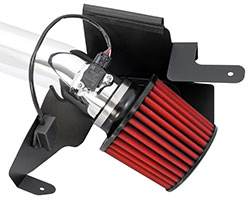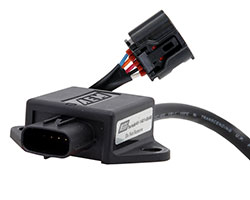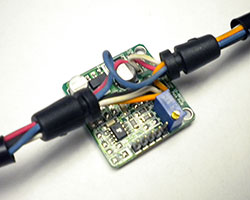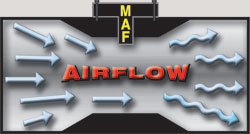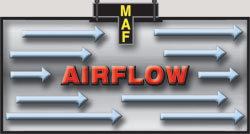Understanding an AEM Electronically Tuned Intake (ETI)
- Oct 27, 2014
An air intake system is designed to increase power by reducing air intake restriction and turbulence. It’s pretty common to find that an aftermarket air intake system uses larger diameter air intake tubes than what comes from the factory. This is very effective at reducing restriction in the air path, but when a larger diameter intake is used on modern cars equipped with a mass airflow (MAF) sensor, it can create confusion for the engine control unit (ECU). This confusion will often lead to a check engine light and/or drivability issues.
Larger diameter tubing is capable of delivering a greater volume of air, but at the same time this can confuse a vehicle’s ECU due to improper MAF sensor readings. Without getting too technical, based on Bernoulli's principle, airspeed will decrease as the size of air intake tubes increase. Slower air speed will cause the mass airflow sensor to send inaccurate readings to the engine control unit. The ECU will then attempt to compensate by adjusting the amount of fuel injected into the cylinders.
Before the AEM electronically tuned intake, a properly designed short ram intake, or cold air intake, would use mechanical methods of increasing air speed, such as reducing the tube diameter, as it passes through the MAF sensor. While this is effective at preventing check engine lights, it has two negative side effects. First, this usually causes a point of restriction in the air intake tube, and second it creates turbulence in the airflow. Reducing restriction and turbulence are supposed to be the two goals of an aftermarket air intake system. With an AEM Electronically Controlled Intake (ETI), there is no need to detune an air intake system. The ETI module included with every AEM ETI air intake is designed to communicate with the mass airflow sensor and the ECU. Think of an AEM ETI module as a mediator, keeping both the MAF sensor and ECU happy. This allows AEM to take full advantage of larger air intake tubes and improving performance without the hassle of aftermarket tuning or the risk of drivability issues. Not every car or truck needs the aid of an AEM Electronically Tuned Intake module for enhanced performance. Use the Search by Car or Truck tool to find an AEM air intake system for your vehicle and see if an AEM ETI air intake is available. |
|||
|
|||

